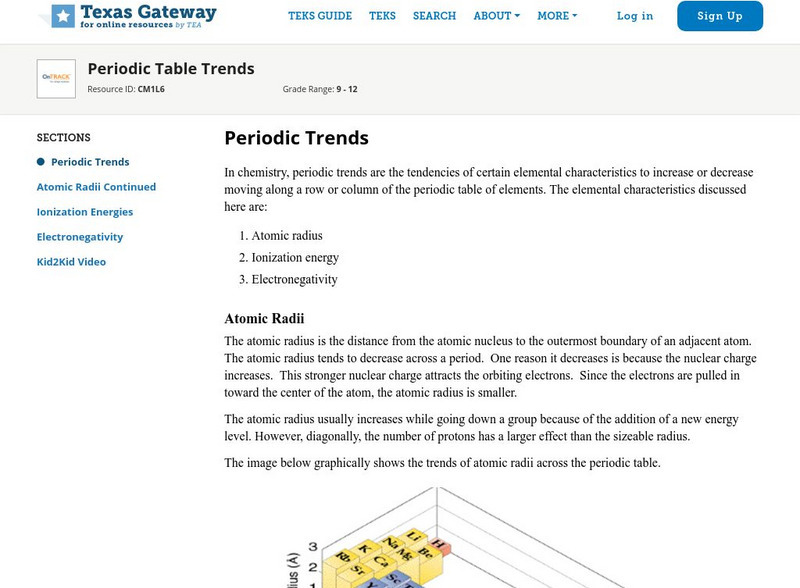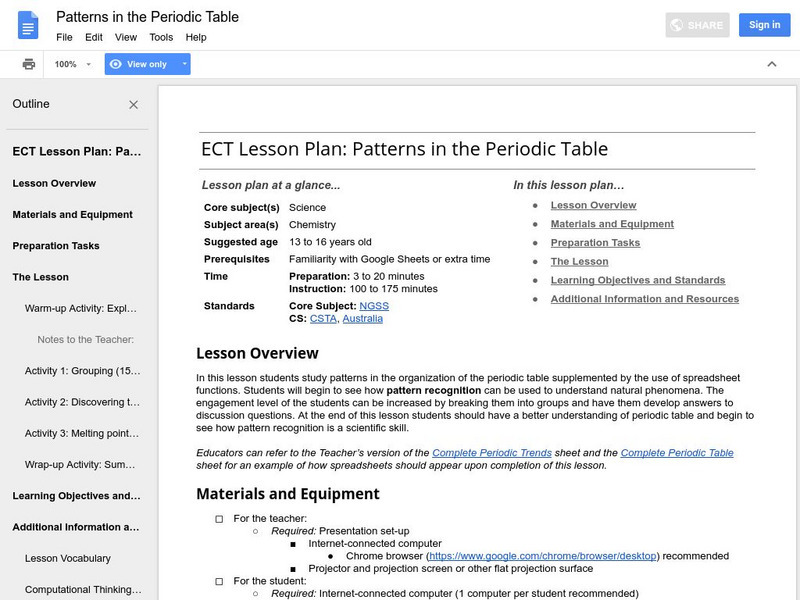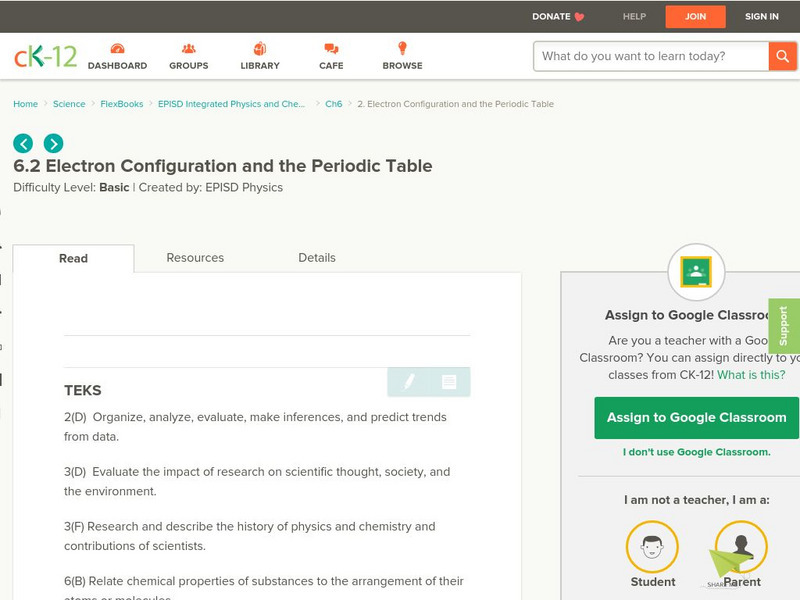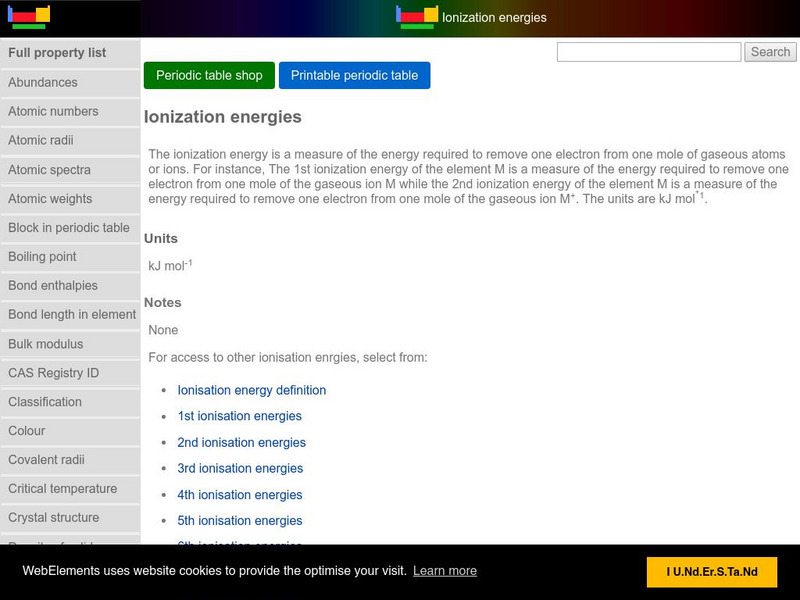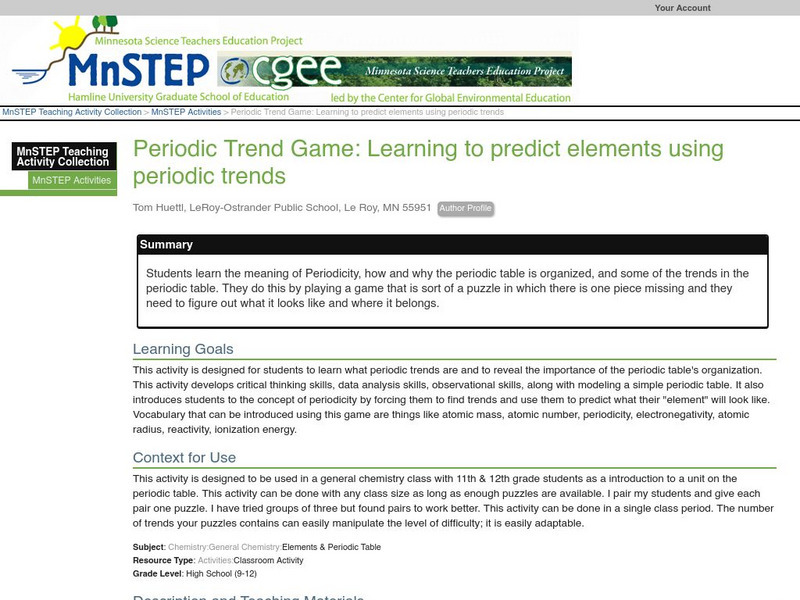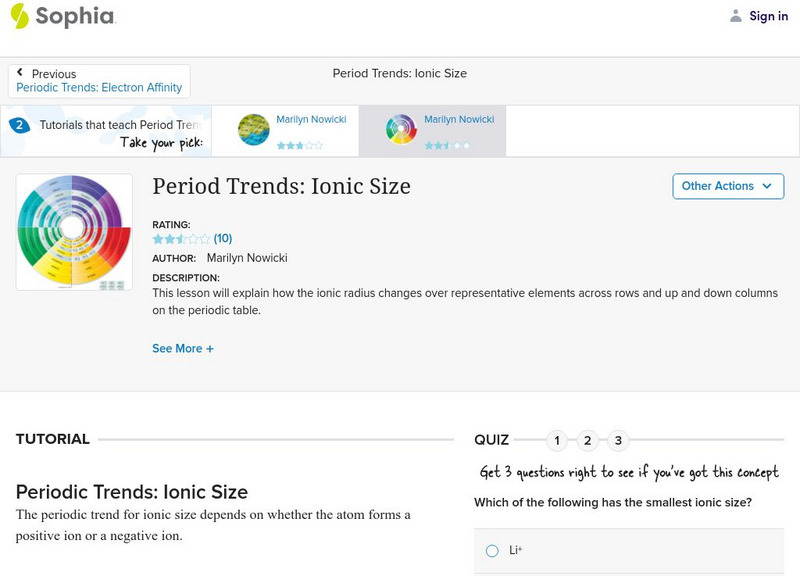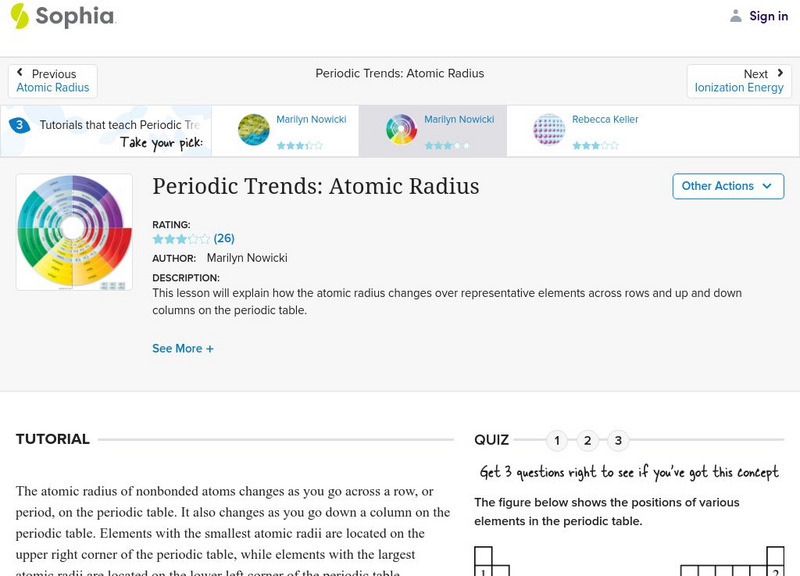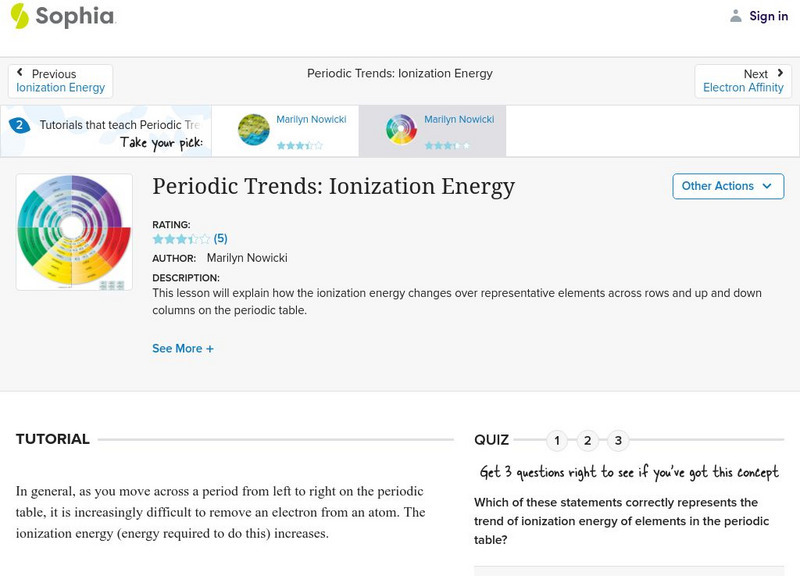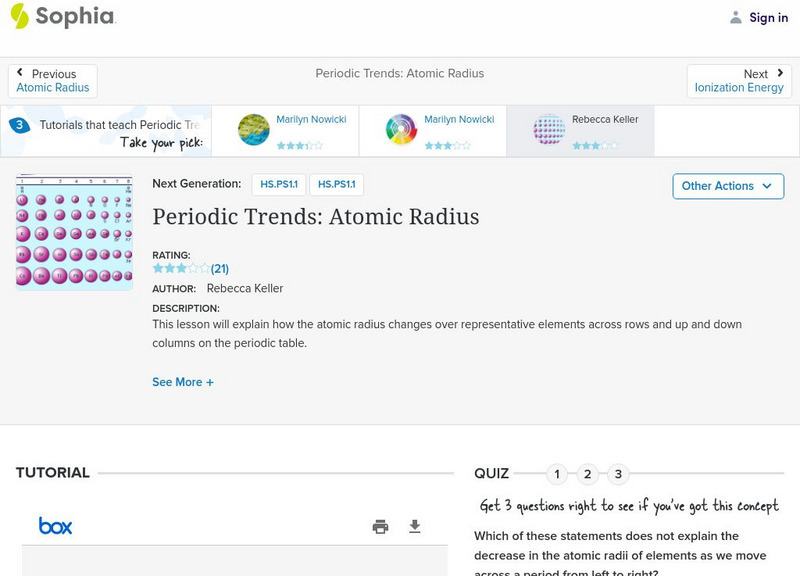Hi, what do you want to do?
Curated OER
Honors Chemistry-Covalent Bonding Study Guide I
In this covalent bonding worksheet, students answer questions about types of bonds, electronegativity, valence electrons, and Lewis dot structures. They answer specific questions about covalent bonds in molecules and explain the...
Curated OER
Pilgrims in Style
Pupils explore the Pilgrims and their clothing. They discuss current trends in fashion and complete a Venn diagram comparing the Pilgrim attire to present day clothing and research websites regarding the Pilgrims. After researching, they...
Curated OER
Flame Test
Students conduct a flame test on different substances. In this chemistry lesson, students predict the element present based on the color emitted during the flame test. They explain how different elements produce different colors.
Texas Education Agency
Texas Gateway: Periodic Table Trends
Given descriptions, scenarios, or groups/series of elements, students will use the Periodic Table to relate the size of the atomic radii, electronegativity, and ionization energy of elements to their position on the chart. Students will...
CK-12 Foundation
Ck 12: Trends in the Periodic Table
[Free Registration/Login may be required to access all resource tools.] Students investigate specific properties that can be predicted by an element's position on the periodic table. Additionally, they will look at the formation of ions,...
Google
Google for Education: Patterns in the Periodic Table
Students study trends in the periodic table of elements, supplemented by the use of spreadsheet functions. The spreadsheet functions presented can be used on any data set.
CK-12 Foundation
Ck 12: Electron Configuration and the Periodic Table
[Free Registration/Login may be required to access all resource tools.] In this learning module, students will explore how the form of the periodic table is related to electron configurations, which in turn influences chemical reactivity.
Frostburg State University
General Chemistry Online: The Periodic Table
This is a teacher's companion guide with lesson plans for the periodic table. It includes learning objectives, lecture notes, links to related sites, answers to frequently asked questions, and a glossary of related terms.
Google
Google for Education: Example: Patterns in the Periodic Table
A lesson plan where students examine the trends in the periodic table.
Science Education Resource Center at Carleton College
Serc: Valence Electrons and Trends in the Periodic Table
This instructor led activity will produce a partially filled periodic table that contains electron-dot models for the first twenty elements in the appropriate boxes. It will be used as a visual tool for students to connect concepts such...
Science Education Resource Center at Carleton College
Serc: Trends on the Periodic Table: Metals, Non Metals, and Metalloids
In this lab activity, students will be asked to observe and then test the physical and chemical properties of several different elements.
Web Elements
Web Elements Periodic Table: Ionization Energy
This WebElements site allows you to create a periodic table that shows the relative ionziation energies of all elements. Great visuals!!
Science Education Resource Center at Carleton College
Serc: Periodic Trend Game: Learning to Predict Elements Using Periodic Trends
An activity to introduce the periodic table and the trends. Students will understand the organization of the periodic table with this game.
Upper Canada District School Board
Tom Stretton's Chemistry Pages: The Chemistry of Period 3
Through an online slideshow format, learn about the chemistry behind Period 3 on the Periodic Table of Elements. The last slide has questions for students.
CK-12 Foundation
Ck 12: Periodic Trends
[Free Registration/Login may be required to access all resource tools.] In the following online tutorail students will use the Periodic Table to identify and explain periodic trends, including atomic and ionic radii, electronegativity,...
Georgia Department of Education
Ga Virtual Learning: Ap Chemistry: Atomic Theory
In this module students explore how matter is classified, the history of atomic theory, subatomic particles, modern atomic theory, electron configuration, the periodic table and its trends, and spectroscopy.
Other
Dynamic Periodic Table
Using this interactive Periodic Table of Elements, learners can view real-time data, dynamically change layouts, visualize trends, and see a 3-D view of orbitals. The names of elements are available in dozens of different languages....
Sophia Learning
Sophia: Period Trends: Ionic Size: Lesson 3
This lesson will explain how the ionic radius changes over representative elements across rows and up and down columns on the periodic table. It is 3 of 3 in the series titled "Period Trends: Ionic Size."
ClassFlow
Class Flow: Periodic Table Trend
[Free Registration/Login Required] This flipchart helps students learn about the periodic trend of Atomic Radius of Elements across a Period and down a Group.
Oklahoma State University
Oklahoma State University: Ionization Energy Trends
Site that discusses trends in ionization energy across and down the periodic table. Apparent contradictions are explained using electron configurations.
Sophia Learning
Sophia: Periodic Trends: Atomic Radius: Lesson 3
This lesson will explain how the atomic radius changes over representative elements across rows and up and down columns on the periodic table. It is 3 of 3 in the series titled "Periodic Trends: Atomic Radius."
Sophia Learning
Sophia: Periodic Trends: Ionization Energy: Lesson 3
This lesson will explain how the ionization energy changes over representative elements across rows and up and down columns on the periodic table. It is 3 of 3 in the series titled "Periodic Trends: Ionization Energy."
Sophia Learning
Sophia: Periodic Trends: Atomic Radius: Lesson 2
This lesson will explain how the atomic radius changes over representative elements across rows and up and down columns on the periodic table. It is 2 of 3 in the series titled "Periodic Trends: Atomic Radius."
Texas Instruments
Texas Instruments: Setting the Trend
In this activity you will - Determine the trend in atomic radius for the periodic table. Determine the trend in first ionization energy for the periodic table. Determine the trend in electronegativity for the periodic table.








